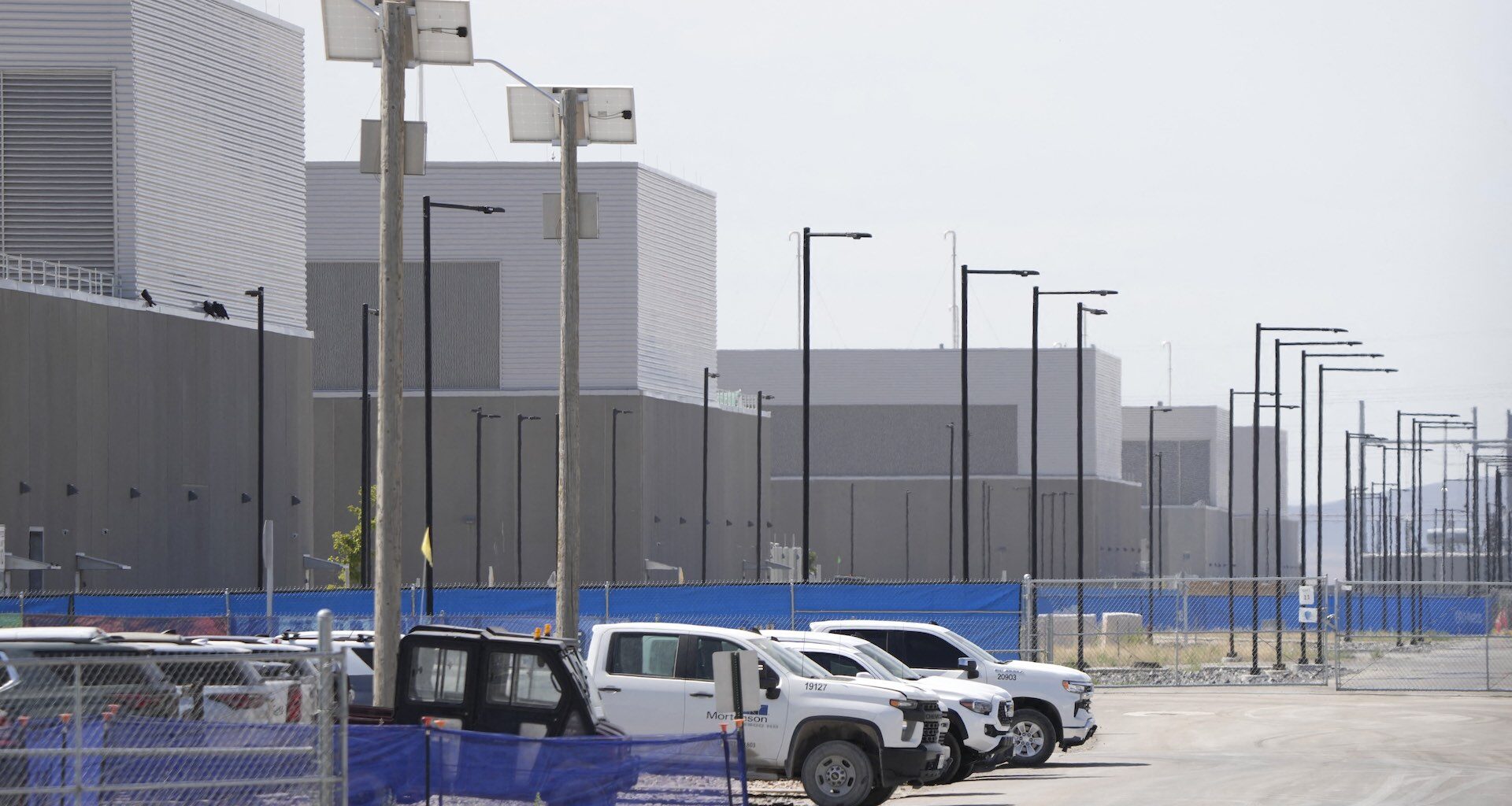CALGARY — Energy infrastructure firm Pembina Pipeline is close to announcing a deal to build a massive AI data centre northeast of Edmonton for the tech giant Meta, three sources familiar with the project have told The Logic.
The arrangement would mark a huge stride in Alberta’s effort to become a data hub for some of the world’s largest AI hyperscalers, in part by leveraging the province’s natural gas resources as a way to generate power.
Pembina will work with fellow Calgary company Kineticor, which provides power generation facilities, to supply natural gas-fired electricity to the project, according to two sources. Beacon AI, a Calgary-based data centre company, was also involved in the deal, one source told The Logic. Definitive terms of the deal were still being worked out, but some regulatory aspects of the development could be announced as early as Friday, sources said. Meta, Pembina, Kineticor, Beacon AI and the Alberta premier’s office did not immediately respond to questions.
Talking Points
A group of companies led by Pembina Pipeline is close to unveiling plans for a large data centre in Alberta’s Industrial Heartland that would supply tech giant Meta with AI computing capacity, sources have told The Logic
The deal comes as the Alberta government has aggressively sought to use its vast natural gas network to attract AI hyperscalers to the province
The Logic agreed to withhold the names of its sources because they were not authorized to speak publicly on the matter.
If completed, Meta’s development would give a huge boost to Alberta’s AI ambitions, as its government has actively courted Silicon Valley tech firms in the hopes that it could use its vast natural gas network to turn the province into a data centre hub. The Meta facility would be located in the province’s Industrial Heartland, a cluster of oil refineries, petrochemical plants and other facilities near Fort Saskatchewan, Alta. The area is also a hub for carbon capture and storage technology, which could help Meta and other major tech firms drive down AI-related carbon emissions.
The proposed project comes as tech behemoths like Meta, Alphabet, Amazon and Microsoft race to ramp up AI capabilities, which require enormous energy supplies to train and operate programs. Some, including Microsoft, have opted to run their facilities on nuclear power to limit emissions. However, inadequate nuclear capacity in many areas, and the long timelines to build it, has companies considering natural gas power in the near-term.
Meta has been among the most aggressive in pursuing compute capacity, and recently announced plans to develop a 5,000-megawatt data centre in Louisiana and separate 1,000-megawatt facility in Ohio.
Earlier this year, Pembina and Kineticor formed a joint venture to develop the Greenlight Electricity Centre (GLEC), a 1,800-megawatt natural gas power station located in the Industrial Heartland. The companies plan to develop the facility in 450-megawatt increments, and have designed it so carbon capture capability can be added later. It is expected to enter commercial operations in 2029.
When the companies announced the venture in February, Kineticor said the station could either supply power to a data centre built at the same site, or feed directly into Alberta’s power grid to support data centres across the province.
Neither Pembina nor Kineticor commented on whether the GLEC would be a power source for the Meta data centre.
Once source familiar with the project said Pembina would provide gas to the facility through its Alliance pipeline, a roughly 3,800-kilometre network connecting northern B.C. and Alberta to Chicago. In July, Pembina announced it was gauging the potential to expand the pipeline to feed 350 million cubic feet of gas per day to the Industrial Heartland, coming online in 2029.
AI data centres like Meta’s come with massive energy demands. A 1,800-megawatt facility, for example, would require the equivalent of nearly eight per cent of the roughly 23,000 megawatts that Alberta’s entire grid is currently capable of generating. Meta did not immediately confirm the planned capacity of the data centre, or how much power it plans to draw from GLEC or other potential power sources.
Two sources said the Alberta government’s recent decision to place a two per cent levy on data centres caused an uproar among some developers, including Meta. The province has since promised to revise the policy.

